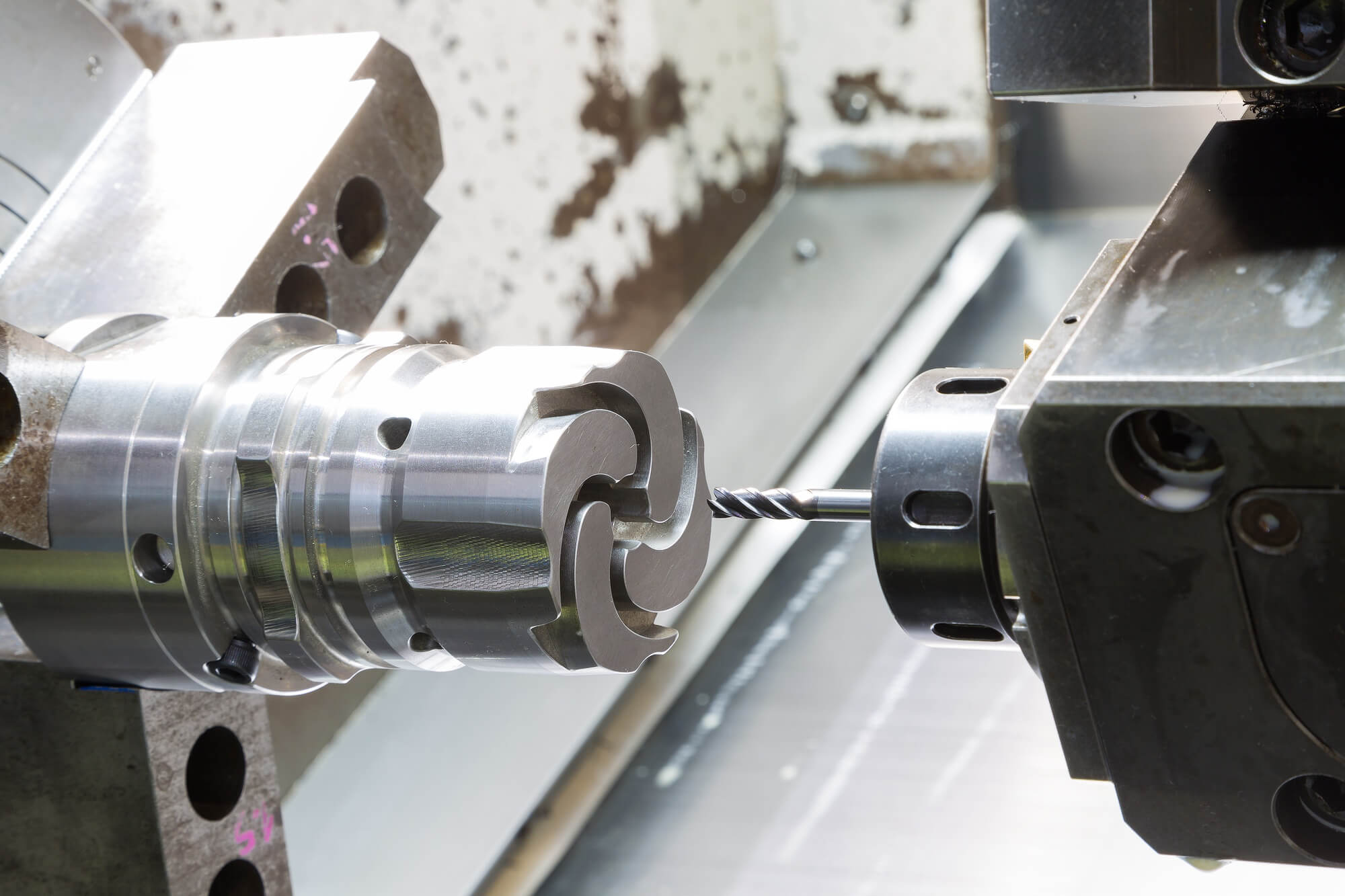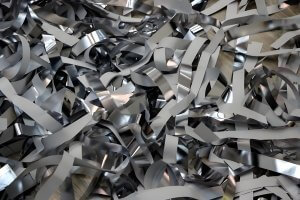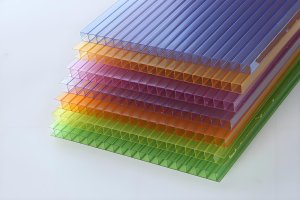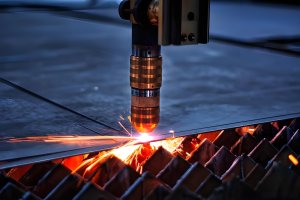What is CNC Machining?
Definition of CNC Machining
CNC machining is a digital manufacturing technology that produces high-accuracy parts with excellent physical properties directly from a CAD file.
It is a fundamentally different way of manufacturing compared to additive (3D printing) or formative (Injection Molding) technologies.
CNC machining is a type of automated machining process that uses computer numerical control technology to shape an object or part by removing material from a workpiece. CNC lathes, for example, shape materials by rotating the workpiece while the machining head moves, offering higher production rates and lower costs for parts, especially for cylindrical profiles.
Brief History of CNC Machining
CNC machining was developed during World War II to meet the growing demand for industrial products.
John T. Parsons and his colleagues at Wright-Patterson Air Force Base in Dayton, Ohio used interpolation curves to achieve complex tapers required for rotor blades.
MIT’s Servomechanisms Laboratory later developed a working machine able to use computational methods to fabricate precise machine parts.
How CNC Machining Works
CNC machining uses subtractive processes, which means feedstock is machined to its final form by subtracting and removing material.
CNC machining is versatile and can be used with various materials, including metals, plastics, wood, glass, foam, and other composite materials.
CNC machining is automated manufacturing process that relies on computer programs to create the layout of the process in which the machine tool should function. Different types of CNC machining processes, such as milling, turning, and drilling, offer various advantages like high accuracy and production scalability, but also present challenges like cost considerations related to design complexity and setup.
Types of CNC Machines
3-axis CNC Machines
CNC milling and CNC turning machines are examples of 3-axis CNC systems.
These machines allow the movement of the cutting tool in three linear axes relative to the workpiece.
They can produce most parts with simple geometries and have high accuracy and tight tolerances.
5-axis CNC Machines
Multi-axis CNC machining centers come in three variations: 5-axis indexed CNC milling, continuous 5-axis CNC milling, and mill-turning centers with live tooling.
These systems are essentially milling machines or lathes enhanced with additional degrees of freedom.
They are more expensive and require specialized machinery and operators with expert knowledge.
CNC Milling Machines
CNC milling machines use a rotating cutting tool to remove material from a workpiece through a process of material removal.
They are commonly used for machining flat surfaces, drilling holes, and creating complex shapes
CNC Turning Machines
CNC turning machines use a rotating cutting tool to remove material from a workpiece. In contrast, CNC mills can produce complex geometries and handle a wider range of materials, making them ideal for specific machining steps where lathes face design limitations. They are commonly used for machining cylindrical parts, cutting tools such as shafts and pipes.
CNC Routing Machines
CNC routing machines use a rotating cutting tool to remove material from a workpiece.
They are commonly used for machining complex shapes and profiles.
CNC Machining Process
The Four Stages of CNC Machining
CNC machining occurs in four stages: design, programming, machining, and inspection.
Computer-Aided Design (CAD)
Computer-Aided Design is the software that creates the graphic representation of the required final part in 2D or 3D.
CAD software is used to create the 2-dimensional and 3-dimensional models for the required CNC machined parts. Outsourcing CNC machining parts is made easy and efficient with features like instant quotes, quick production, and price competitiveness.
Computer-Aided Manufacturing (CAM)
Computer Aided Manufacturing (CAM) software generates CNC programs that a machine can understand.
CAM software works together with CAD programs to execute operations using a CNC machine.
Distributed Numerical Control (DNC)
Distributed Numerical Control (DNC) is a setup where multiple machine tools are connected to a central server.
The central server processes the design files and sends commands to each machine tool separately.
Manufacturing Data Collection (MDC)
Manufacturing Data Collection (MDC) is software that collects data from machines and operators about the different manufacturing information generated in real-time.
MDC helps manufacturers to improvise on the existing production line and identify the causes of any delays and loss in production.
CNC Machining Materials
Metals
Aluminum
Aluminum is a popular choice for machining due to its low density, good mechanical properties, high thermal and electrical conductivity, and resistance to corrosion.
Aluminum alloys, such as 6061-T651, 7075-T651, and 2024-T351, are commonly used in CNC machining because they offer a good balance of strength, machinability, and cost.
Brass
Brass is an alloying consisting of both copper and zinc.
The gold materials is a weather- and corrosion- resistant metal with tensile strength similar to mild steel.
It’s also an easy to machine material, so feedrates can remain high and coolant need is minimal.
Copper
Copper is a metal that is corrosion-resistant, extremely electrically conductive, and highly ductile.
Its glossy orange-reddish appearance is instantly recognizable, and the metal looks attractive even when it goes through a natural oxidation process that forms a bluish-green coating called patina in response to its environment.
Note, however, that copper weldability is considered moderate to poor.
Stainless Steel
Stainless steel is well-suited for a wide array of CNC machining projects, due to its excellent machinability and outstanding uniformity. The precision and quality achievable with CNC parts make them ideal for critical applications, including aerospace and rapid prototyping.
It also has good workability and weldability to match your specific machining needs, as well as high ductility and formability to meet the specification requirements of any project.
Steel Alloy
Steel Alloy 4140 is a low alloy steel containing chromium, molybdenum, and manganese.
It is widely used across numerous industries and is an excellent material choice for machining due to its toughness, high fatigue strength, and abrasion and impact resistance.
Steel Mild Low Carbon
Low carbon steel, also known as mild steel, contains up to 0.30% carbon.
This gives the material low strength while making it more malleable and ductile compared to high carbon steels.
Titanium
Titanium is a popular material for CNC machining due to its excellent strength-to-weight ratio, corrosion resistance, and biocompatibility.
However, titanium presents unique challenges in machining due to its high strength, low thermal conductivity, and tendency to work harden during cutting.
Plastics
Acetal
Delrin 570 is a homopolymer acetal containing 20% glass fiber filler.
It has very high stiffness, low warpage, and low creep for superior performance at elevated temperatures.
ABS
ABS is a low-cost engineering plastic that is easy to machine.
ABS is an ideal material for structural applications when impact resistance, strength, and stiffness are required.
It’s widely used for pre-production prototypes since it has excellent dimensional stability and is easy to paint and glue.
Delrin
Delrin, also known as Polyoxymethylene (POM), is a high-performance plastic with numerous advantageous features.
Its high stiffness, low friction, and excellent wear resistance make it a popular choice for applications requiring high mechanical strength, such as gears, bushings, and bearings.
With its remarkable combination of properties, Delrin stands out as a versatile and reliable material for a diverse range of applications.
HDPE
HDPE is a high-density polyethylene that is lightweight, has low moisture absorption, is chemical and corrosion resistant, and has high strength.
It is great for applications such as orthotic and prosthetic devices, water storage, and tanks.
LDPE
LDPE is more flexible than HDPE, while still being light-weight and providing chemical and corrosion resistance.
It’s extremely flexible making it great for prosthetic devices and thermoformed parts.
PEEK
Using PEEK materials (chemically known as polyetheretherketone) is ideal for a wide spectrum of CNC machining applications where thermal, chemical, and combustion properties are critical to performance.
Whether in a sheet, rod, tube, or film, PEEK is a high-performance material that can be cut to size and used for a variety of CNC machining projects.
PEI
ULTEM is an amorphous thermoplastic polyetherimide (PEI) material that combines exceptional mechanical, thermal, and electrical properties.
Natural ULTEM is a translucent amber color.
Key attributes include excellent mechanical strength, ability to retain strength at elevated temperatures, high heat resistance, and high stress resistance.
PET
PET, also known as Polyethylene Terephthalate, is a semi-crystalline thermoplastic polyester with excellent wear resistance, low coefficient of friction, high flexural modules, and superior dimensional stability.
It it a very versatile option for mechanical and electro-mechanical parts.
PMMA (Acrylic)
Acrylic, also known as polymethyl methacrylate (PMMA), is a versatile plastic material widely used in CNC machining for its remarkable properties.
Acrylic’s optical clarity, light transmission, and UV resistance make it a popular choice for a wide range of applications, from signage and display products to lenses and lighting fixtures.
With its exceptional combination of optical clarity, machinability, and versatility, acrylic is an excellent choice for CNC machining applications that require precision and aesthetics.
Polycarbonate
Polycarbonate (PC) is an engineering plastic with excellent dimensional stability and good strength and stiffness.
It’s a go-to material for parts that need clarity and impact strength.
We offer four grades of machined polycarbonate:
Polypropylene
Polypropylene (PP) Copolymer is a common thermoplastic often used for its versatility.
It is easy to fabricate, will not crack with vibration or wear, and can also be used in applications that require chemical resistance and/or FDA compliance.
Polystyrene (HIPS)
High Impact Polystyrene (HIPS), is a low cost plastic material that is easy to machine.
It is often used for low strength structural applications when impact resistance, machinability, and low cost are required.
It is a great material choice for prototyping due to its dimensional stability and ability to paint and glue.
PPSU
RADEL R polyphenylsulfone resins offer exceptional hydrolytic stability and toughness that is superior to other commercially available, high-temperature engineering resins.
It offers high deflection temperature and outstanding resistance to environmental stress cracking.
The polymer is inherently flame retardant, has excellent thermal stability, and good electrical properties.
PTFE
Polytetrafluoroethylene (PTFE), commonly known by its trade name Teflon, is a versatile and highly desirable material for CNC machining due to its unique properties.
It is a type of fluoropolymer and is best known for its non-stick and low-friction properties.
This makes it an excellent choice for applications that require a low coefficient of friction, such as bearings, bushings, and seals.
PTFE also has excellent chemical resistance, making it ideal for use in harsh environments.
Additionally, PTFE has a wide temperature range, from -200°C to +260°C, which makes it suitable for applications that require extreme temperature resistance.
Its electrical insulation properties are also noteworthy, making it useful in electrical components and insulation.
PVC
Polyvinyl Chloride (PVC) is an extremely versatile polymer and used widely across many industries due to its exceptional corrosion resistance, high strength-to-weight ratio, and cost efficiency.
Other Materials
Wood
Wood is a natural material that can be used for CNC machining.
It is often used for making furniture, decorative items, and other wood products.
Garolite
Garolite is a type of composite material made from a combination of glass fibers and a thermosetting resin.
It is often used for making electrical components, such as circuit boards and connectors.
Invar
Invar is a type of alloy made from a combination of iron and nickel.
It is often used for making precision instruments, such as clocks and watches.
Kovar
Kovar is a type of alloy made from a combination of iron, nickel, and cobalt.
It is often used for making electrical components, such as connectors and switches.
Magnesium
Magnesium is a lightweight metal that is often used for making aerospace and automotive components.
It is also used for making medical implants and other medical devices.
Nylon
Nylon is a type of synthetic polymer that is often used for making textiles and other products.
It is also used for making CNC machined parts, such as gears and bearings.
Torlon
Torlon is a type of polyamide-imide (PAI) material that is often used for making high-performance components.
It is known for its high strength, stiffness, and resistance to heat and chemicals.
UHMW
Ultra-High-Molecular-Weight Polyethylene (UHMW) has high abrasion resistance, great durability, and excellent wear resistance.
UHMW is lightweight, self-lubricating, and has good chemical resistance.
Common applications include gears, bearings, liners, conveyors, food processing, agriculture, and automotive components.
UHMW can absorb shock.
Ultem
ULTEM is a thermoplastic with exceptional strength, stiffness, durability, environmental resistance, heat resistance, and low flammability.
ULTEM exhibits excellent electrical insulation capabilities and chemical resistance.
Common applications include electronic components/connectors, industrial equipment, surgical instruments, aerospace engine components, and medical devices.
ULTEM is naturally translucent amber color, frosted when machined.
Zinc
Zinc is a versatile metal with excellent heat resistance, durability, strength, electrical conductivity, thermal conductivity, machinability, and corrosion resistance.
Processes: CNC Mill, CNC Lathe
Mill Lead Time: As fast as 7 days
Finishing Options: Vibratory Tumbling, Media Blasting, Powder Coating
Tolerance: With drawing: as low as +/- 0.005 mm No drawing: ISO 2768 medium
CNC Machining Applications
Aerospace
CNC machining is widely used in the aerospace industry for making aircraft and spacecraft components.
It is used for making parts such as engine components, landing gear, and satellite components.
Automotive
CNC machining is widely used in the automotive industry for making car and truck components.
It is used for making parts such as engine components, transmission components, and brake components.
Medical
CNC machining is widely used in the medical industry for making medical devices and implants.
It is used for making parts such as surgical instruments, implants, and diagnostic equipment.
Industrial
CNC machining is widely used in the industrial industry for making machinery and equipment components.
It is used for making parts such as gears, bearings, and other mechanical components.
Consumer Products
CNC machining is widely used in the consumer products industry for making a wide range of products.
It is used for making parts such as phone cases, laptop components, and other electronic devices.
Advantages of CNC Machining
Production Speed
CNC machining is a fast and efficient process that can produce parts quickly and accurately. Online CNC machining offers additional benefits such as instant quotes and rapid prototyping, making it an excellent solution for custom metal and plastic machining needs.
It is ideal for high-volume production runs and can produce parts in a matter of minutes.
Consistency
CNC machining is a consistent process that can produce parts with high accuracy and precision.
It is ideal for making parts that require tight tolerances and precise dimensions.
Reduction of Rejections
CNC machining is a process that can reduce the number of rejected parts.
It is ideal for making parts that require high accuracy and precision.
Cost Saving
CNC machining is a cost-effective process that can save money on labor and materials. Online CNC machining services offer rapid and customizable solutions with fast turnaround times and a wide range of materials and finishes. It is ideal for making parts that require complex geometries and precise dimensions.
Material Versatility
CNC machining can work with a wide range of materials, including metals, plastics, and composites.
It is ideal for making parts that require specific material properties.
Manufacturing Data Tracking
CNC machining can track manufacturing data in real-time.
It is ideal for making parts that require precise tracking and monitoring.
Accuracy
CNC machining is a highly accurate process that can produce parts with precise dimensions and tolerances.
It is ideal for making parts that require high accuracy and precision.
CNC Machining vs. Other Machining Methods
Traditional Machining
Traditional machining is a manual process that requires a machinist to operate a machine tool. CNC technology, a significant advancement over traditional methods, offers superior precision and production efficiency. It is less accurate and less efficient than CNC and machining tools.
3D Printing
3D printing is an additive process that builds parts layer by layer.
It is ideal for making complex geometries and prototypes, but it can be slow and expensive.
CNC Machining Design Considerations
Tool Stiffness
Tool stiffness is an important consideration in CNC machining.
It can affect the accuracy and precision of the parts being made.
Design Rules for CNC Machining
There are several design rules to follow when designing parts for CNC machining.
Understanding different manufacturing processes is crucial when designing products for CNC machining, as it enhances consistency and accuracy while reducing manual labor.
These rules include considerations such as material selection, part geometry, and tolerances.
CNC Machining Finishing Options
Anodized (Type II Or Type III)
Anodizing is a process that converts the surface of a metal part into a decorative, durable, and corrosion-resistant finish.
It is commonly used for making parts that require a high level of corrosion resistance.
Titanium Anodize
Titanium anodizing is a process that converts the surface of a titanium part into a decorative, durable, and corrosion-resistant finish.
It is commonly used for making parts that require a high level of corrosion resistance.
Passivation
Passivation is a process that removes free iron from the surface of a metal part.
It is commonly used for making parts that require a high level of corrosion resistance.
Electropolishing
Electropolishing is a process that removes a thin layer of metal from the surface of a part.
It is commonly used for making parts that require a high level of corrosion resistance.
Silver Plating
Silver plating is a process that deposits a thin layer of silver onto the surface of a part.
It is commonly used for making parts that require a high level of conductivity.
Zinc Plating
Zinc plating is a process that deposits a thin layer of zinc onto the surface of a part.
It is commonly used for making parts that require a high level of corrosion resistance.
CNC Machining Tolerances
Precision Machining Tolerance
Precision machining tolerance is the ability of a CNC machine to produce parts with precise dimensions and tolerances.
It is commonly used for making parts that require high accuracy and precision.
CNC Machining Certifications and Industry Standards
ISO 9001
ISO 9001 is a quality management standard that ensures a company’s products meet customer and regulatory requirements.
It is commonly used in the CNC machining industry to ensure high-quality parts.
AS9100
AS9100 is a quality management standard that ensures a company’s products meet customer and regulatory requirements in the aerospace industry.
It is commonly used in the CNC machining industry to ensure high-quality parts.
IATF 16949
IATF 16949 is a quality management standard that ensures a company’s products meet customer and regulatory requirements in the automotive industry.
It is commonly used in the CNC machining industry to ensure high-quality parts.
CNC Machining Market Overview
Challenges in the CNC Industry
The CNC industry faces several challenges, including the need for skilled labor, the high cost of equipment, and the need for precise tolerances.
Trends in the CNC Machining Industry
The CNC machining industry is trending towards the use of automation, robotics, and artificial intelligence.
It is also trending towards the use of advanced materials and technologies, such as 3D printing and nanotechnology.
CNC Machining Career and Demand
Is CNC a Good Career?
CNC machining is a good career for those who enjoy working with machines and making precise parts.
It requires a high level of skill and attention to detail.
Is CNC in High Demand?
CNC machining is in high demand due to the need for precise parts in a wide range of industries.
It is a growing field that requires skilled labor.
Getting Started with CNC Machining
Prepare a Technical Drawing
A technical drawing is a detailed drawing of a part that includes dimensions, tolerances, and other specifications.
It is commonly used in the CNC machining industry to ensure high-quality parts.
Get an Instant Quote & Start Manufacturing
An instant quote is a quote that is generated quickly and easily using a computer program.
It is commonly used in the CNC machining industry to get started with manufacturing.
Download our CNC Design Guide!
A CNC design guide is a guide that provides information on how to design parts for CNC machining.
It is commonly used in the CNC machining industry to ensure high-quality parts.
Frequently Asked Questions
What is your typical lead time for CNC machining orders?
The typical lead time for CNC machining orders is 3-5 days.
It can vary depending on the complexity of the part and the material being used.
What tolerances can your CNC machines achieve?
CNC machines can achieve tolerances as low as +/- 0.001 inches.
It can vary depending on the machine being used and the material being machined.
How do you ensure the confidentiality and security of our designs and intellectual property?
We ensure the confidentiality and security of our customers’ designs and intellectual property by using secure servers and encryption.
We also have a non-disclosure agreement (NDA) that we sign with our customers to ensure confidentiality.
Can you accommodate rush orders or expedited delivery?
Yes, we can accommodate rush orders or expedited delivery.
We have a team of experienced machinists who can work quickly and efficiently to meet tight deadlines.
Are you able to work with complex geometries or 2D drawings?
Yes, we are able to work with complex geometries or 2D drawings.
We have a team of experienced machinists who can work with a wide range of materials and geometries.
Can you assist with design optimization for manufacturability in CNC machining?
Yes, we can assist with design optimization for manufacturability in CNC machining.
We have a team of experienced engineers who can work with our customers to optimize their designs for manufacturability.
Conclusion
Summary of CNC Machining Benefits and Applications
CNC machining is a highly accurate and efficient process that can produce parts with precise dimensions and tolerances.
It is commonly used in a wide range of industries, including aerospace, automotive, medical, and consumer products.
It offers several benefits, including high accuracy, high efficiency, and cost savings.
It is a growing field that requires skilled labor and advanced technologies.
Other Articles You Might Enjoy
- Requirements for CNC Machining Parts
Preparation Work Complete the necessary preparation before machining, including process analysis, process route design, tool and fixture selection, and program compilation. online cnc machining service Operating Steps and Contents Start…
- Unraveling the World of CNC Machined Plastic Parts(CNC machined plastic parts Mabel)
Modern innovations have taken traditional manufacturing methods to new heights. One such innovation that stands out is Computer Numerical Control (CNC) machining, a process used extensively in various industries from…
- CNC Machined Plastic Parts: An In-depth Overview(CNC machined plastic parts Norman)
Computer Numeric Control (CNC) machining is an advanced manufacturing process where pre-programmed software dictates the movement of factory machinery and tools. These applications can carry out complicated manufacturing tasks with…
- Enhancing CNC Machining with Smart Alloys: Shape Memory Metals vs. Traditional Alloys
Introduction to CNC Machining Computer Numerical Control (CNC) machining stands as a cornerstone in modern manufacturing, enabling the precise and automated shaping of materials. This technology relies heavily on the…
- The Ultimate Guide to Acquiring CNC Machined Parts
In today's business landscape, there are two main categories: production and services. While service-based businesses are easier to establish, production businesses hold greater potential for growth. If you're considering venturing…
- What are the requirements for CNC machining of bearing parts?
Bearings are common and important parts in the automotive industry, which can support transmission components and transmit torque. Generally, CNC machining centers are used to process bearing parts. So what…






